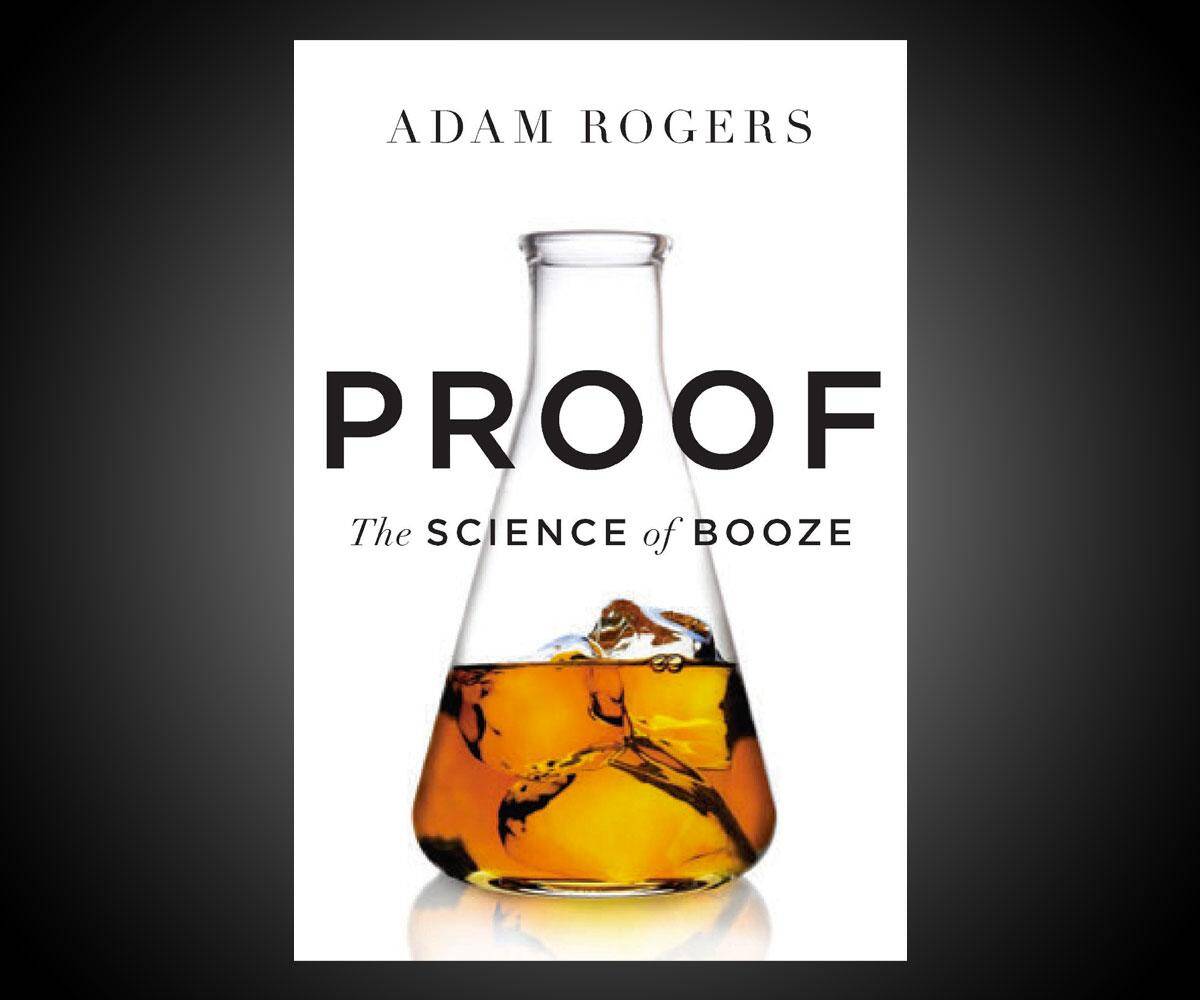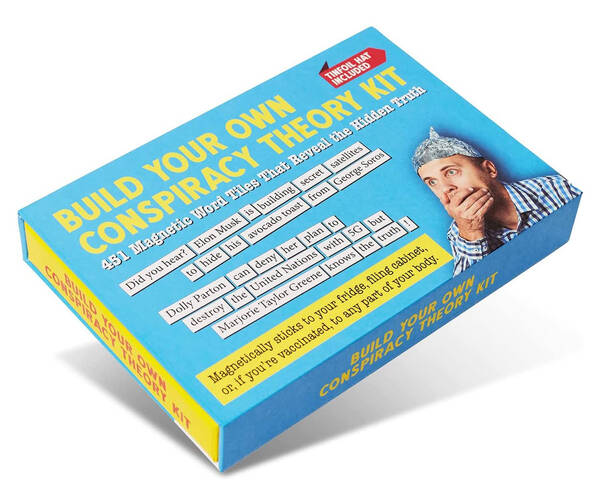Proof: The Science of Booze | |||||||||||||
| |||||||||||||
Product Description
Proof: Booze Makes Everything Better. No, not really. Well I mean, yes, that's really true of course, but it's not really the name of the book. Proof: The Science of Booze is its accurate title. But I'm pretty sure that... [Read more]Top Reviews
Like Modern Marvels, Only Betterby Charles J. (5 out of 5 stars)
March 21, 2016
"Proof" is an outstanding book. Neither too short nor too long for its topic, it crisply discusses various elements of the production of (ingestible) alcohol. The author, Adam Rogers, an editor at Wired magazine, writes in a compelling, engaging fashion, including enough science to be interesting and not superficial, without putting in so much science that the average reader gets bored.
Rogers discusses in turn every major element of the process. First, he covers yeasts, ranging over their history in the happenstance production of alcohol, through the modern production of specialized yeasts for different processes. Then he discusses sugars, the raw material on which yeasts act, and then fermentation-the process of yeasts acting on sugar. This sounds very technical, and parts of it are. But Rogers manages to smoothly intersperse simplified scientific discussions with anecdotes and conversations with individuals tied to each topic of interest. It all fits together quite well.
"Proof" then moves on to secondary steps in alcohol production: distillation and aging. Rogers ends with ancillary topics: the mostly subjective area of smell and taste, and then the objective, but poorly understood, area of the effect of alcohol on the human body and brain. Finally, Rogers caps off the book with a discussion of hangovers.
Perhaps controversially, Rogers implies that he believes two heresies: that all vodka is the same and therefore perceived taste differences in vodka are delusional, and that much wine appreciation is similarly delusional. As to vodka, I have no idea, although a liquor company executive once told me the same thing and blind taste tests tend to prove delusion as well. Rogers faintly contemptuously points out that vodka has no congeners and is merely pure alcohol, and that while "die-hard vodka drinkers believe that the purest vodkas really do differ in flavor, on its face, that claim doesn't make sense." He notes that "one hypothesis for why they don't says that [water] forms crystalline molecular cages called clathrates, trapping ethanol inside. . . . . [but] it's not like there are taste buds for hydrogen bond strength." He never quite comes out and says that perceived vodka differences are fantasy, though.
As to wine, Rogers seems to believe, with long discussion, that most wine perception is purely subjective, although with training, experts can sometimes use the same language to describe the same wines-but they are likely perceiving things differently, even though they are using the same language, and nearly all perceptions of relative quality are purely subjective, both to the person and the situation. Yes, an expert can identify a specific wine-but only one that he is familiar with, in most cases. His own description of an unfamiliar wine will usually vary from the descriptions of others, even when supposedly using a common vocabulary. Rogers notes studies that wine tasters who are given white wines to taste, then the same wine colored red, report wildly different tastes, appropriate for red wines, for the colored white wines. Rogers notes studies that show that no human can actually distinguish more than four flavors or smells blended together, in wine or anything else. He implies that he believes that people like Robert Parker "are essentially making it all up. Or, like some storefront psychics, possibly they think they know what they're talking about, when in actuality they've merely intuited their way into a con." So this book may enrage the haute vodka or wine drinker.
For the book as a whole, its net effect is something like watching "Modern Marvels" or "How It's Made," but in print and in more detail. Of course, if you hate shows like those, you won't like this book. But if you do, you'll love this book.
Fun but rambling history of booze research.
by Peter Henry (3 out of 5 stars)
September 21, 2016
While this is touted as a scientific text, it really is far more of a disjointed history of the science of booze. I was totally amused at the end when the writer talks about his editor not wanting a history book, but that he couldn't write what he wanted without historical context. This is an enjoyable romp through alcohol from start to finish, covering many topics - often well intertwined topics. It's organization is sparse, jumping back and forth between subjects sometimes seemingly at random, and it is filled with technical buzzwords. Often the author will have a whole paragraph of synonymous terms for something - not really necessary for a lay text, and while it sounds very CSI sciency, it really doesn't enhance the delivery or information conveyed.
There is a lot of solid research and interesting material in here. Making it more condensed would have conveyed that information much more clearly, but would probably have upset the people who want page count. There are many anecdotes from personal interviews, some relevant, some not. The author's need to go into descriptions about the interviewee's dog or similar nonsense is sometimes distracting, but sometimes does help to add flavor to the cocktail. A lot of work went into the glossary and index.
Overall, it's a fun book. It's not a science book. You'll get fun facts for use at your next trivia party, but not really much science out of this.
I'm really glad I got the low cost Kindle edition. It was well worth $3, but would have been very disappointing at hardcover prices.
I just don't like the chatty stuff in this book - lots of ...
by Bret Daline (2 out of 5 stars)
January 12, 2016
An OK read, I did mange to finish it. too much of the author in the book - where he is at, who he is taking to, how he got drunk as a skunk with friends to test hang-over cures. Not a whole lot of science, and it's watered down. I read a lot of non-fiction, I just don't like the chatty stuff in this book - lots of it is just page filler, chewing gum for the eyes. A much better book on 'booze' is "Drink: A Cultural History of Alcohol" by Iain Gately.
Interested in Alcohol's History, Chemistry, and Drink Fermentation Processes?
by CGIsackson (5 out of 5 stars)
August 15, 2019
Interested in Alcohol's History, Chemistry, and Drink Fermentation Processes? Then this book will quickly become a go-to for cocktail information, making you a drinking companions hit conversationalist! It contains the history of drinking, brewing, types of yeasts, types of fermentation processes and much more in a very easy to read the book.
I bought it as a gift to a fellow who happened to see it at another friend's home and was totally intrigued by it, so I got it for him. I used to distill alcohol and understand what the process entails and I found this book totally well written and worth the time to read (or have it ready for a long plane trip). Please buy this and become an alcohol expert!
Meritorious Investigation on Ethanol
by Ivan Mejia J. (5 out of 5 stars)
February 1, 2016
The Science of Booze is a very interesting book on alcoholic fermentation, whisky fabrication and the effects of ethanol consumption.
Mr. Rogers exposes a meritorious and extensive investigation he made in Canada, USA and Scotland, that deserves a slow and careful reading by those people interested in knowing what they are getting when drinking alcoholic beverages.
The large bibliography shown at the end, provides profuse information for the prospective investigators on the booze theme.
The notes extend the scope of the book and the index, which is an orderly list of concepts, is very helpful to search information along it.
Since the book is written in colloquial language, it has somehow difficult passages to be quickly understood by nonnative English language readers.
pathetic semester of human biology
by Ashley Anderson (5 out of 5 stars)
August 23, 2015
I've never appreciated alcohol. I'm an early 90's kid and I can count the 'adult' beverages I've had on one hand. Only a few weeks ago I learned about 'shotgunning' beer. Yeah, I'm that person.
Oddly, Proof was just my kind of book. This was a massive information drop on a subject that I have never truly appreciated, and didn't know much about. Rogers writes in journalistic style with enough wit and humor that made it both edgy and entertaining. The book made me thirsty, and as I drank, I began to appreciate alcohol. In the beginning of the book, terminology such as 'amino acids', 'ATP, and 'alleles' were popping up. I began having flashbacks to my one, pathetic semester of human biology. My interest in organic and biochemistry was sparked. Rogers took me into biology labs, distilleries, and fermentation process labs where the I experienced the process of booze-making for the first time, the basics of ethanol, the role of 'congeners' (molecules other than ethanol and water in any drink that gives distillates their flavor), and how the mycology of both environment and storage impart the taste and finer flavor to the end-product.
Whenever the book seemed to become a bit too dry, Rogers would masterfully become facetious, writing, "Few three-word phrases inspire less confidence than "according to yelp" or "23% of people do not get hangovers (the scientific term for them is "jerks")." It's important to remember that Rogers is not a scientist, but instead a journalist interested in science. The book is serious; it just doesn't take itself too seriously. Rogers impressed me most by projecting the simple way alcohol can and should have a place in life. Most people my age are sots. They have no class. Handling alcohol with style is an instant point of difference the classy have over other drinkers. Rogers makes you want to rise above the "whoever drinks more" competitions, and to become a classy drinker who would never succumb to a thing as trite as peer pressure. I half expected Cary Grant or Humphrey Bogart photographs at the end of the book to assist as representative examples.
In the end, Rogers said it best: "People sometimes think science is about discovery. But the action in science, the fun part of doing it (or reading about it), isn't answers. It's questions, the stuff we don't know. Behind every step of the process that produces fermented beverages and then distills those into spirits, there is deep science, with a lot of researchers trying to figure it all out."
I'm still trying to figure it all out. What I do know is that I've been impressed. Rogers' book is a triumph. He has written a fantastic book, and we will have to live with the consequences.
The Science for Poets of Booze
by C. Rodman (5 out of 5 stars)
January 20, 2017
I suspect this book is of more interest to me, as a whiskey collector, than to most, but it is actually great. It deals with everything alcohol, from its history, to its place in society (throghout history), and largely the science behind it, usually at the chemical and physical levels. What's nice is the author makes a lot of the science comprehensible and even when you may not know specifically what is happening at the organic chemistry level (I almost never did), you still understand what it means. And he also throws in enough casual accounts and humor to keep you going if/when the book starts to feel a little dense
Illuminating
by D.C. Bull (4 out of 5 stars)
November 21, 2018
Proof provides a pretty good overview of the scientific world of booze, albeit with a serious western angle. The chapters read well, and the last word on Hangovers is a joy to read for those of us all too familiar with the subject. I learnt quite a lot from the book, and it introduces some cool people and places too. It would be good to have an updated version that addresses Baiju as a category as the dry fermentation and the highly efficient if somewhat unorthodox distilling process (for those of used used to western distillation) are poorly understood and deserve more attention.
Altogether a very enjoyable read, and recommended for drink fans looking for a considered glance at the state of the industry today.
A good read. Cheers.
by Auliya (5 out of 5 stars)
January 3, 2016
Meandering, but not quite drunkenly, this book follows somewhat disconnected interviews and reflections within an otherwise fairly well-organized framework. It reads more like an informal -- but informative -- personal journal... rather than hard science writing. But that gives it a certain charisma. My only nag... Not every point it pursues reaches closure. Sometimes the author introduces an interesting question or science plot point, as if to create suspense, but that suspense is never resolved. The book just coasts blithely to the next segment. (Many television documentaries do this as well. It's a tactic to keep you engaged.) Anyway. Despite this, I wasn't unhappy with it. A good read. Cheers.
Stirred, not shaken.
by Michael MacDonald (4 out of 5 stars)
February 16, 2016
Good, interesting read. I'd recommend it to anyone who enjoys alcohol of any type. Obviously - this will tend to appeal more to the nerds mostly. However, it has its appeal for others as well.
Ultimately, Adam Rogers won't be shocking you with insight, but I'd say he distils (pun unintended) the science into something that is palatable and entertaining - kinda like your favourite domestic brew.
I can admit that my curiousity was certainly stirred by the book, but I can't say I was shaken!
Customers Who Bought This Item Also Bought
- Liquid Intelligence: The Art and Science of the Perfect Cocktail
- Distillery Operations: How to Run a Small Distillery
- Kings County Distillery Guide to Urban Moonshining
- The Complete Whiskey Course: A Comprehensive Tasting School in Ten Classes
- How To Make Whiskey: A Step-by-Step Guide to Making Whiskey
- Drink: A Cultural History of Alcohol
- Tasting Whiskey: An Insider's Guide to the Unique Pleasures of the World's Finest Spirits
- The Drunken Botanist
- The Joy of Home Distilling: The Ultimate Guide to Making Your Own Vodka, Whiskey, Rum, Brandy, Moonshine, and More (Joy of Series)
- The Artisan's Guide to Crafting Distilled Spirits
*If this is not the "Proof: The Science of Booze" product you were looking for, you can check the other results by clicking this link








